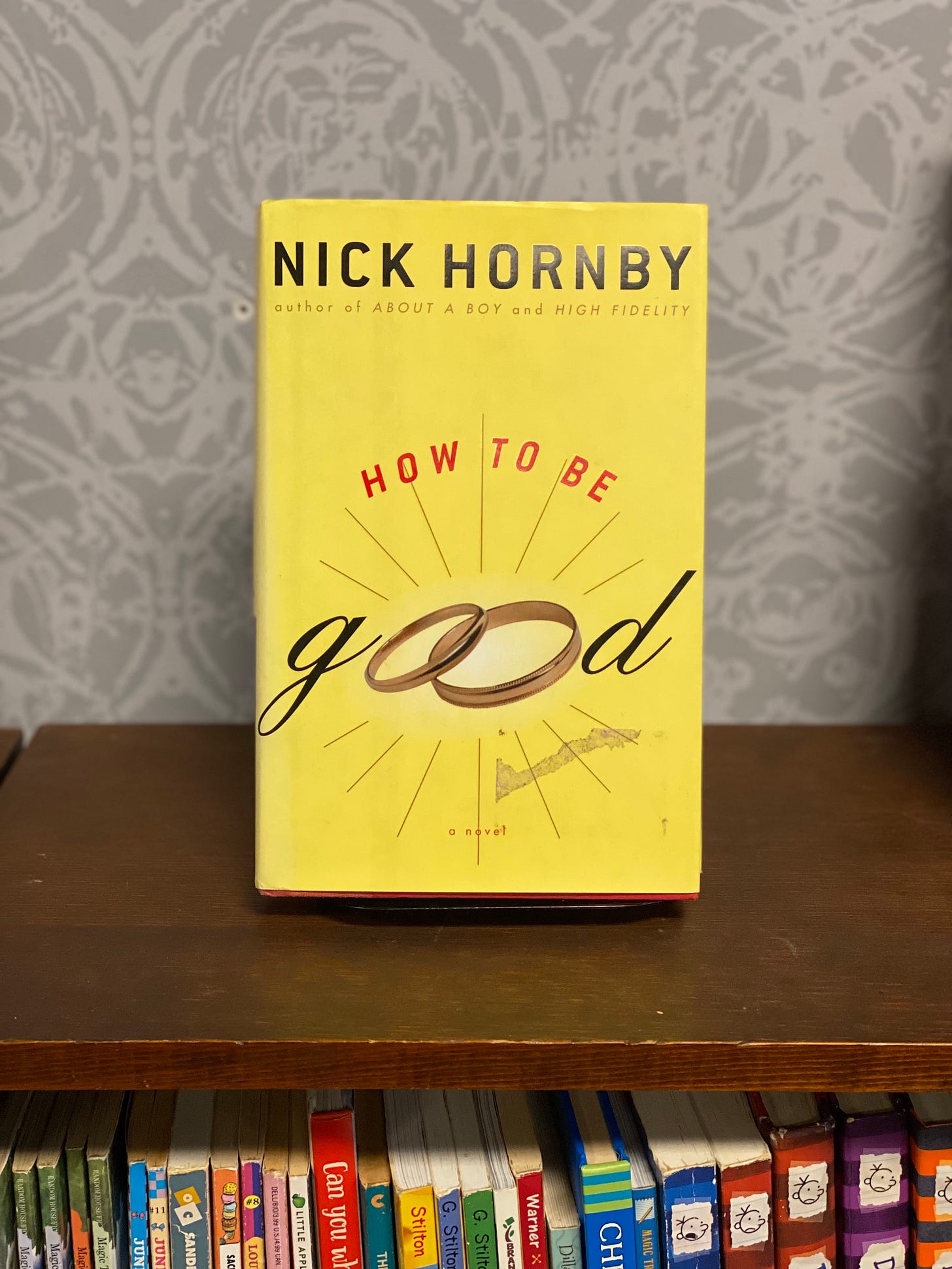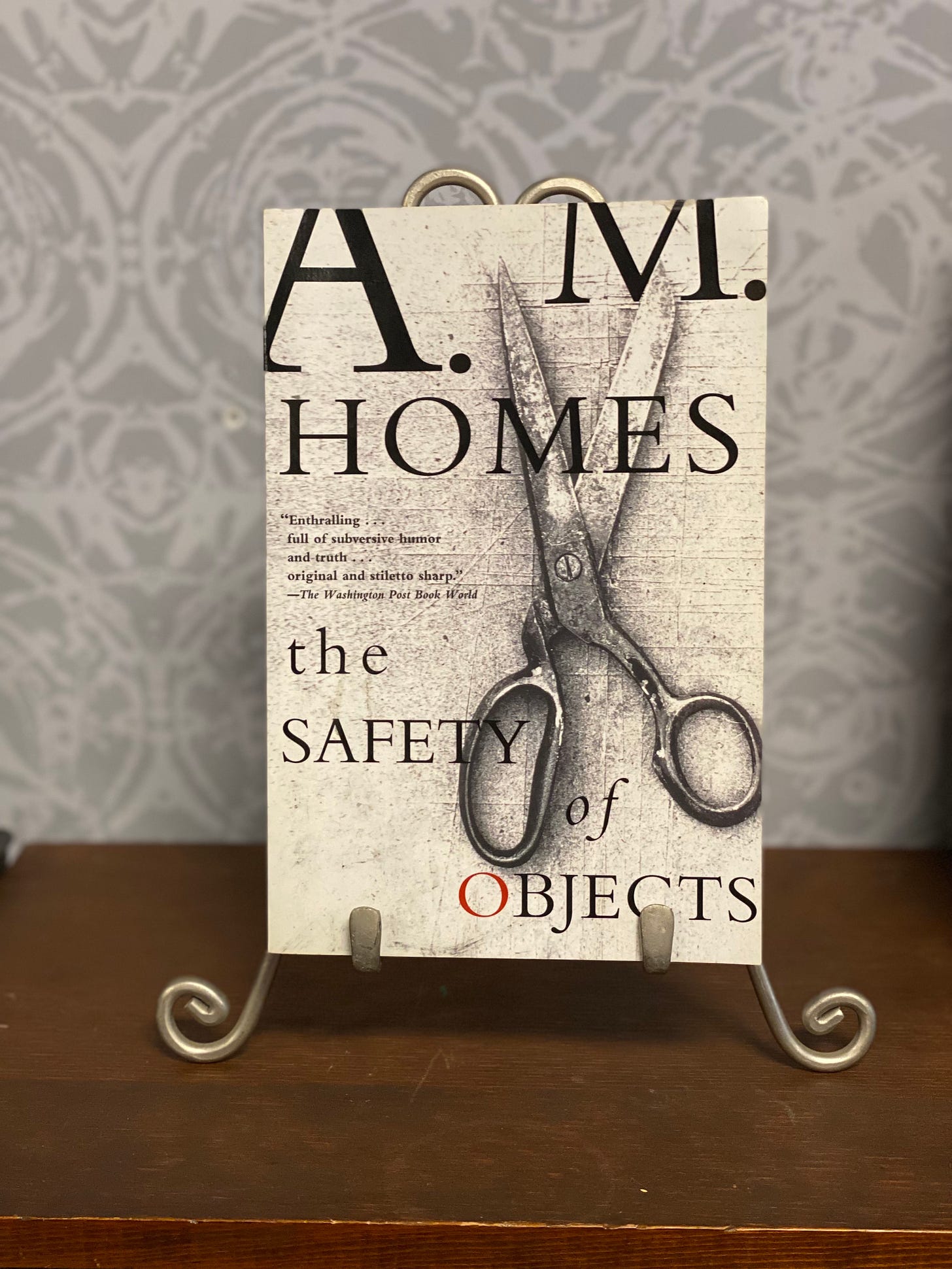The Books You Broke Up With: Part One
In which the store is a museum of our customers' literary exes, and Kate feels old
A few weeks ago, Francis and I were going through a pile of new-to-us books, and I made some sort of positive squeak when I saw Allegra Goodman’s Intuition.
“Oh, do you know this author?” asked Francis, who is somehow both a whole entire adult with years of bookselling experience and twenty years younger than me. Thus began an ongoing conversation about authors that are Really Quite Famous in my head, but not actually well known/read among younger bookish folks.
Between 1998 and 2006, I was either working in publishing or in grad school studying writing, so I read more than I probably ever will again. Here are few books I loved back then, which we currently have among our used books.
Nick Hornby, How to Be Good (2001)
When I was doing my MFA, I read Nick Hornby’s About a Boy and had an important epiphany about my own writing: I didn’t have to choose between being funny and sad. Also, I didn’t have to write something obscure and self-consciously ~literary~ in order to write something that felt smart. What Hornby does with voice helped enormously in steering me toward my own—even if I wound up applying mine mostly to feminist rants about the kind of men who were his protagonists.
How to Be Good was considered a departure from his earlier work, both because it deals with more grown-up concerns—marriage, divorce, the very concept of “goodness”—and because it features a female protagonist. This is the book that made me stop apologizing even a little bit for loving Nick Hornby.* He’s great. So is Katie, the narrator here, whose husband has gone from being “the angriest man in Holloway” to a sensitive, thoughtful, spiritual, do-gooder—and become even more insufferable as a result.
*Every time I type a sentence like that about a book I haven’t read in years, I start to worry that it contains something horribly problematic I’ve forgotten. Let this be a blanket disclaimer that I do not approve of horribly problematic things.
A.M. Homes, The Safety of Objects (1990)
I want to believe even younger people still know about A.M. Homes, who’s won the Bailey’s Prize for Women’s Fiction (then the Orange Prize) and fellowships from the NEA, the Cullman Center for Scholars and Writers at the New York Public Library, the New York Arts Foundation, and the Guggenheim Foundation. The Safety of Objects was even made into a movie in 2001—sort of a Short Cuts thing, I guess—though I did not remember that at all until I just Googled.
What I do remember is the deeply unsettling story about a teenage boy who’s “dating” his sister’s Barbie doll—she and Ken are, in fact, sentient for the purposes of the story—and the casual abuses people who feel powerless will sometimes inflict just as soon as they get the chance. Barrett Bowlin writes about that one here, and while I don’t recall the rest of the book as clearly, I can tell you the same dark but funny but dark streak carries through the whole thing. (Speaking of which, please enjoy Homes reading and discussing Shirley Jackson’s “The Lottery” on The New Yorker fiction podcast a while back.)
Ian McEwan, Atonement (2001)
McEwan is one of a long list of white, male authors (including T.C. Boyle, John Irving, Cormac McCarthy, Philip Roth and, as we discussed in this space earlier, John Updike) who I think of as “the guys our customers used to read.” Your literary exes. Decent guys, extremely smart, great storytellers, often funny—but not always super enlightened about sexism, racism, or anyone who isn’t exactly like them. They were great fun at parties, and being close to them made you feel more interesting for a while, but eventually, you realized they would always be the center of attention—even when it was just the two of you. If you wanted to become a fully realized character in your own right, you had to move on.
(Since this newsletter is technically meant to sell books, not drive you away from them, a note: I’m a big believer that no one should waste their one wild and precious life reading books they don’t find wonderful, but I also believe it is possible to find a book wonderful overall despite frequently screaming, “Oh, come ON” at the author. So I still do recommend at least some books by all of those authors, with asterisks of varying sizes. Please come in and buy them, so we can make room for a more diverse and less problematic collection of authors!)
Anyway, Atonement. It’s the only McEwan novel I’ve actually read all the way through, because 2016’s Nutshell—which is basically Hamlet told from the perspective of a fetus observing his murderous mother and uncle—felt so misogynistic, I couldn’t finish it. (I was obviously intrigued enough by the premise to start, but I quickly realized that making a male fetus the protagonist and the woman he lives inside a scheming villain would require a very delicate touch if one wanted to avoid an air of antichoice propaganda. In terms of subtlety, Nutshell is pretty much Stewie Griffin as the melancholy Dane. In Part Two of this newsletter, I will get into the issue of authors who wrote some terrific books, then turned into unreadable cranks.)
Atonement, though, looks at an issue that’s often discussed in an antifeminist light—the fallout of false sexual assault accusations—and opens it up to a nuanced examination of how classism, patriarchal mores, the culturally constructed perception of innocence, and individual moral failings can combine to ruin lives. There’s a reason why it’s widely considered McEwan’s masterpiece. We have a couple copies, last time I checked. Come and get it.
This is already so long, and late, and I need to actually go to work, so I’m going to have to leave the rest for Part Two. (I’m also working on a poetry version of this premise with the help of my friend Laura Passin, whose first book, Borrowing Your Body, is now available for pre-order.)
Until next time,
Kate






Thank you, Kate, for reminding me of those sharp pangs of anguish I had throughout my reading of Atonement. Thanks, too, for what I'll take as blanket forgiveness for the fact that it took me until A Widow For One Year, and like six other books before that, before I even allowed myself to sit with the question, "Wait, is John Irving a jerk?" I read until the end anyway, but I stopped after that. And probably moved on to too many Russell Banks books, which I will also not apologize for because The Sweet Hereafter still kills me just thinking about it.